The 1931 'Witch of Delray' murder case
The Detroit News

Detroit during Prohibition and the Great Depression was a city of great excesses on one side and great poverty on the other. In this chaotic time, one crime grabbed the headlines like no other: The first-degree murder trial of Rose and Bill Veres. "The Witch of Delray," by Grosse Pointe Woods author Karen Dybis, is a true-crime, non-fiction book set in Detroit that re-examines the 1931 murder.
THE HISTORY PRESS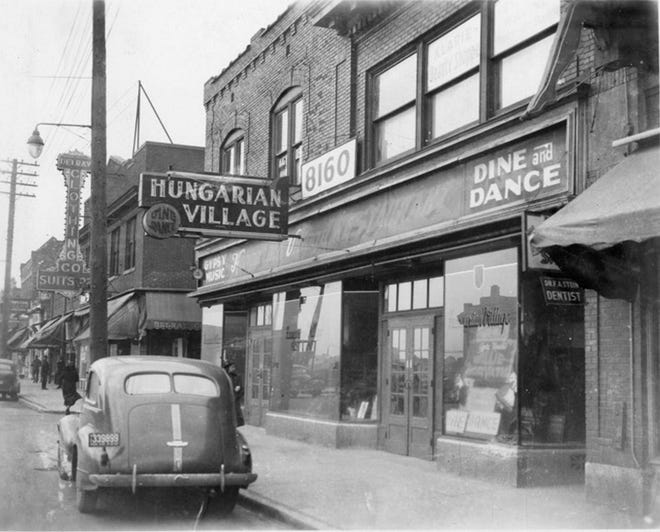
Detroit's Delray neighborhood was home to many immigrants. Rose Veres, a Hungarian widow, ran a boarding house for many years there.
BURTON HISTORICAL COLLECTION, DETROIT PUBLIC LIBRARY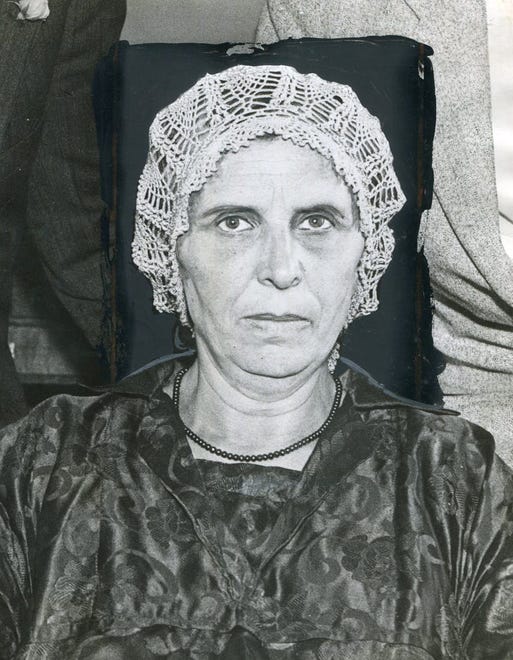
Rose Veres was known in her Delray neighborhood for keeping a tight leash on her boarders, treating them like her own three sons. But the 1931 death of one of her boarders, who fell from a ladder outside her home, drew suspicions that led to a murder trial.
AUTHOR'S COLLECTION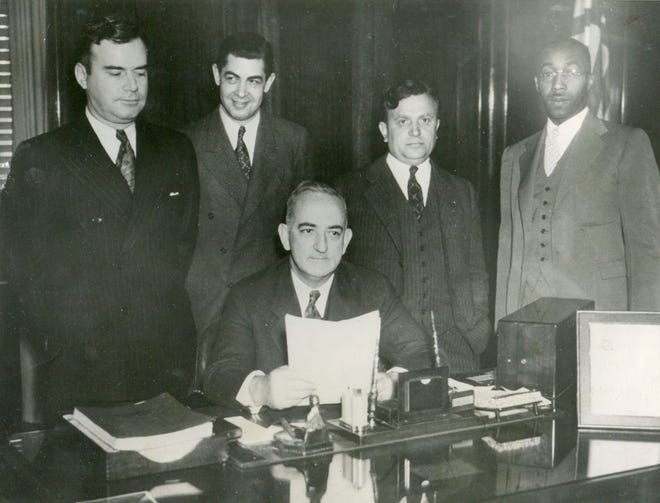
Duncan C. McCrea, seated, was one of the assistant prosecutors assigned to the Rose and Bill Veres trial. He soon took over the majority of the prosecution in the case and was quite the showman. McCrea was said to be taking bribes from the time he was elected Wayne County prosecutor in 1935. Like many others at city hall, he soon would come under investigation.
AUTHOR'S COLLECTION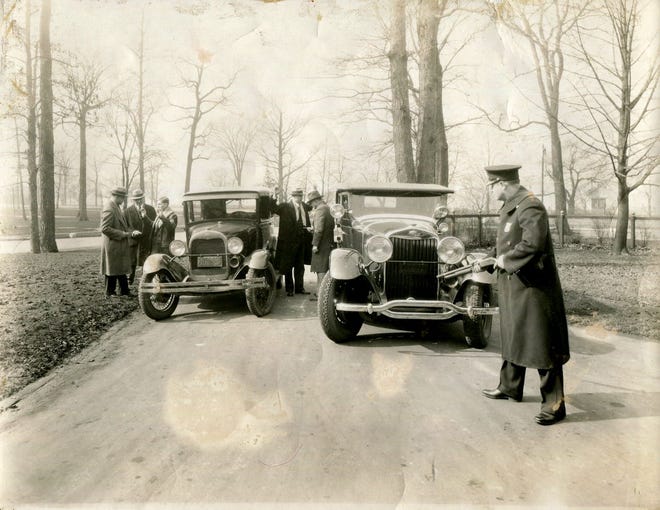
The fraternity of Detroit police was strong, as officers faced regular danger from an increasingly mobile population. They had a huge population of 1.5 million to patrol; many of them were immigrants or newcomers from the South. They also were battling with Prohibition and many men out of work because of the Great Depression.
AUTHOR'S COLLECTION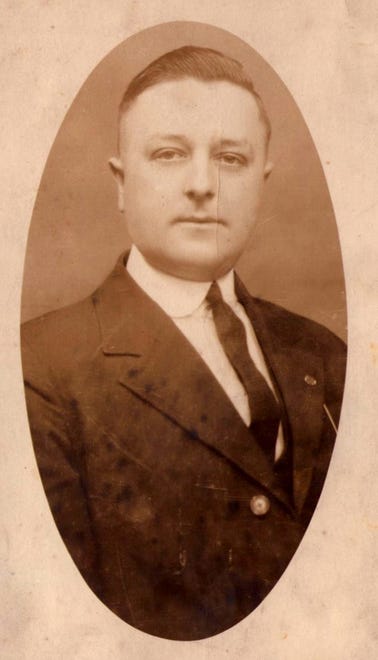
John Whitman became the Detroit police's lead detective in the Rose Veres case, organizing the investigation on Medina Street. He became uncomfortable with the way the prosecution was building the case against her.
WHITMAN FAMILY COLLECTION
Rose Veres' middle son, 16-year-old Gabor, was questioned by assistant prosecutor Duncan McCrea, right, about the deaths of 10 men in their home over a 10-year period. At left is Veres' attorney, Frank M. Kenney Jr.
The Detroit News Archives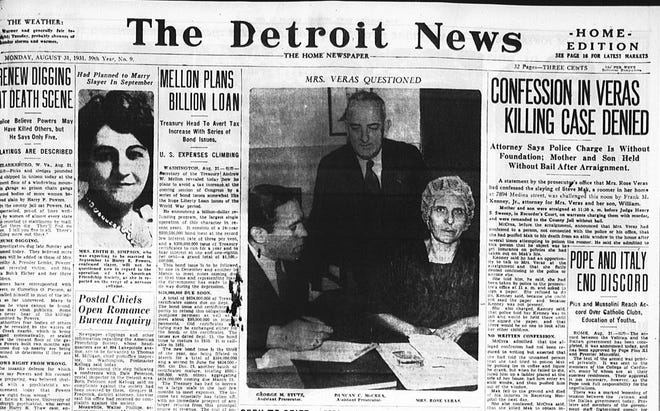
Sometime during what the prosecutor's office described as a hundred hours of grilling, Rose Veres supposedly confessed to Steve Mak's murder. It was front-page news. The jury would convict her and her son Bill Veres.
The Detroit News Archives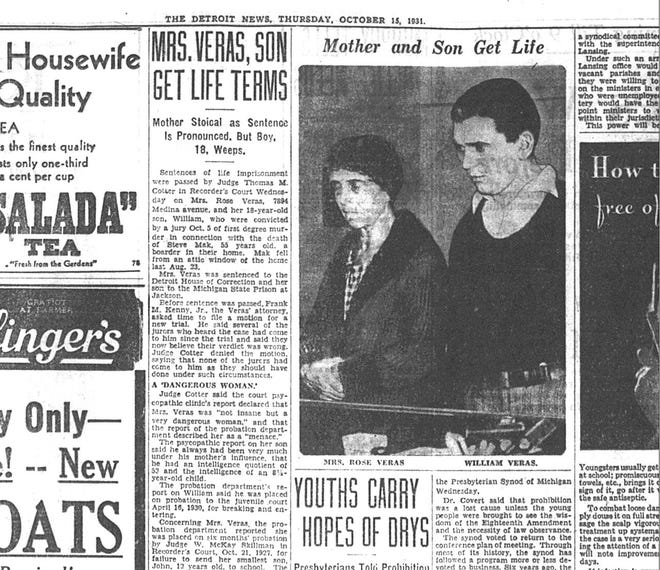
On Oct. 15, 1931, Rose Veras and her son William, 18, both were convicted of first-degree murder and sentenced to life in prison. Defense attorney Frank M. Kenny Jr. asked to file a motion for a new trial, saying that several jurors had come to him since the trial and said they now believe their verdict was wrong. The motion was denied.
The Detroit News Archives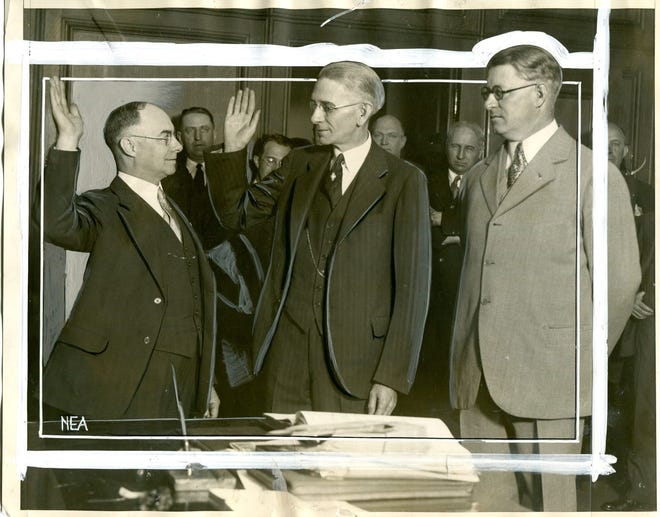
Detroit city clerk (and future mayor) Richard W. Reading, left, swears in Thomas Wilcox as Wayne County sheriff. Within a few years, both men would be indicted on graft charges and sent to prison.
AUTHOR'S COLLECTION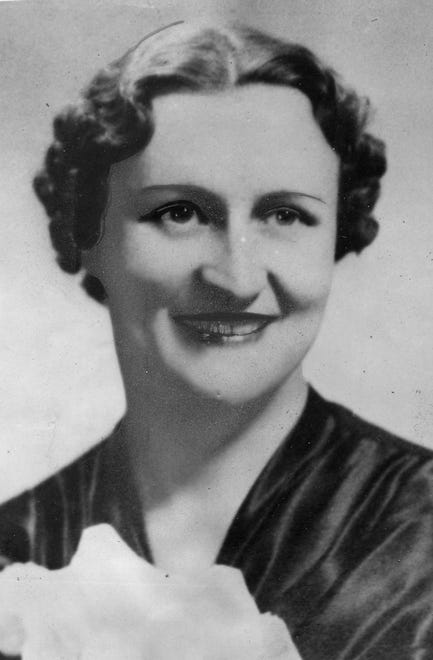
Janet McDonald set the city hall corruption scandal in motion. When her boyfriend, who worked in a Detroit gambling house, left her, she committed suicide and left behind a series of letters for the FBI, the police and newspapers outlining city hall's bribery setup. The letters resulted in a grand jury investigation.
AUTHOR'S COLLECTION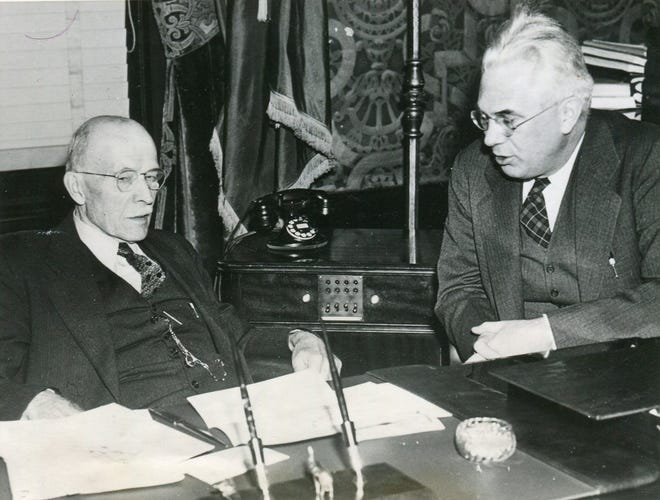
Circuit court judge Homer S. Ferguson, right, was tapped to lead a grand jury investigating charges of graft among Detroit's political elite.
AUTHOR'S COLLECTION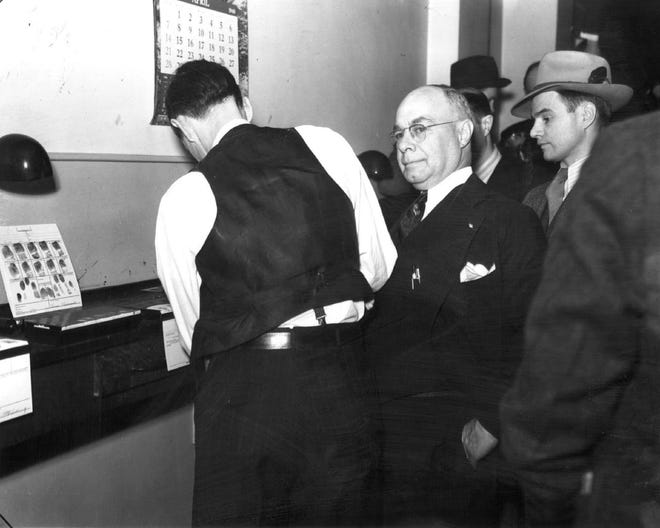
Detroit Mayor Richard W. Reading is fingerprinted in April, 1940. He would be was sentenced to 4½ to 5 years for graft, selling protection to numbers' racketeers and promotions to police officers. Dozens of others were sent to prison including Sheriff Thomas Wilcox and Prosecutor Duncan McCrea. It was the largest political scandal in the city's history.
The Detroit News Archives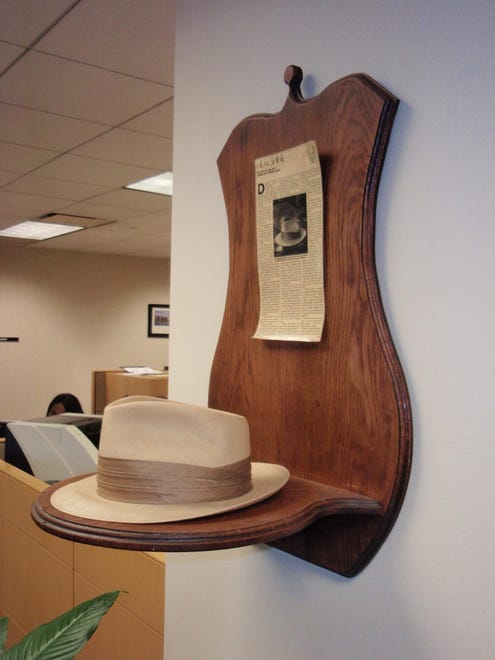
Assistant prosecutor Duncan C. McCrea's hat, which he had to leave behind when he was run out of the prosecutor's office, remains in the Frank Murphy Hall of Justice as a reminder of his misdeeds. But yet in prison, McCrea met Bill Veres, and it was in part thanks to McCrea's interventions that Bill got a new trial.
AUTHOR'S COLLECTION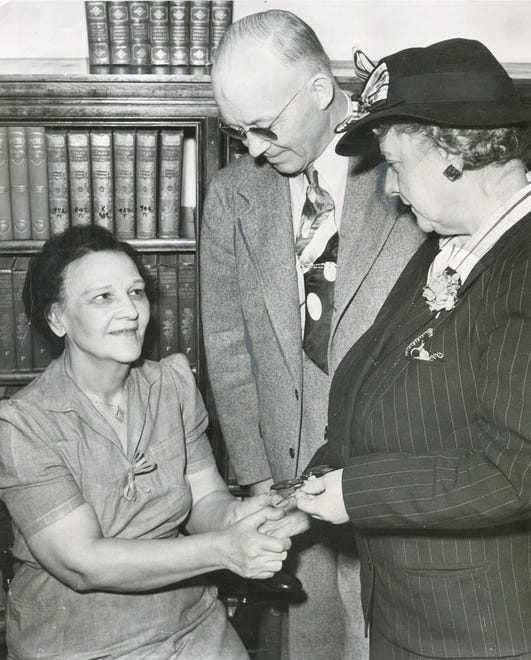
Attorney Alean Clutts, right, a crusader against the unfair treatment of women, got Rose Veras a retrial. In December 1945, she was exonerated and released. Clutts is seen here with another client, Maude Cushing Storick, who spent 25 years in jail for her husband's death before Clutts proved her innocence.
AUTHOR'S COLLECTION